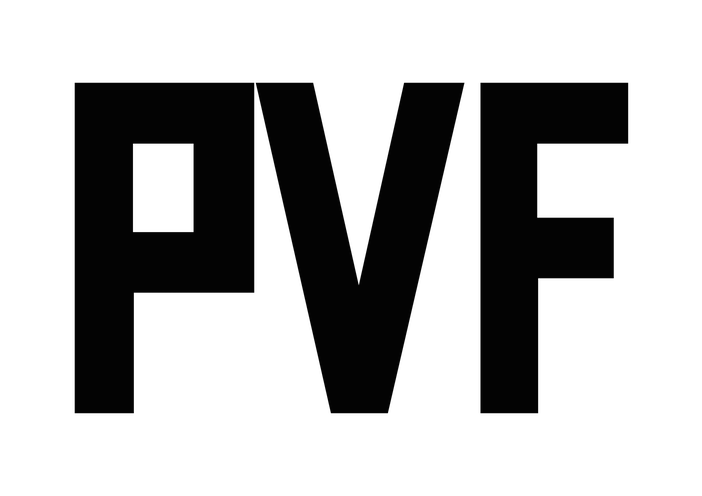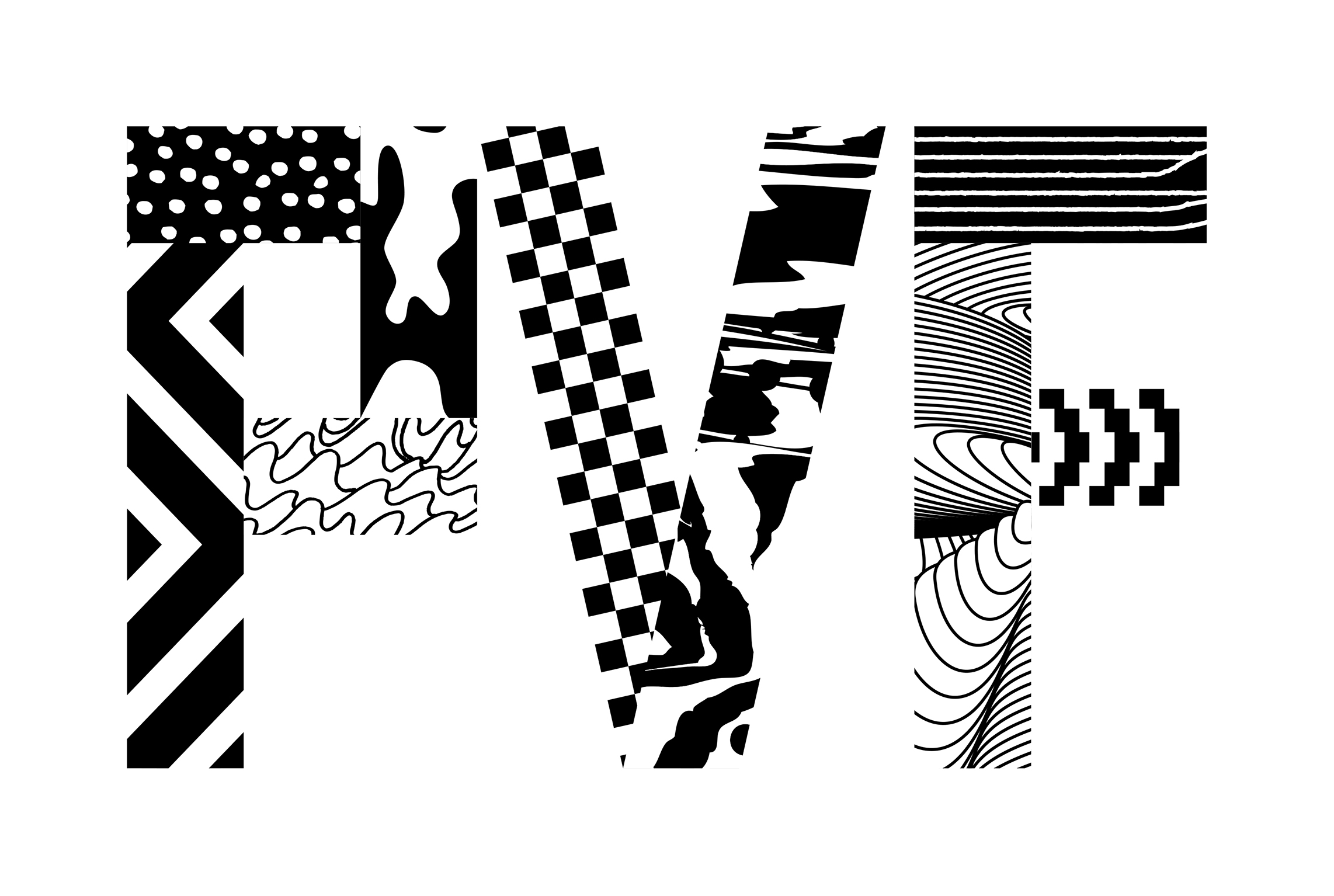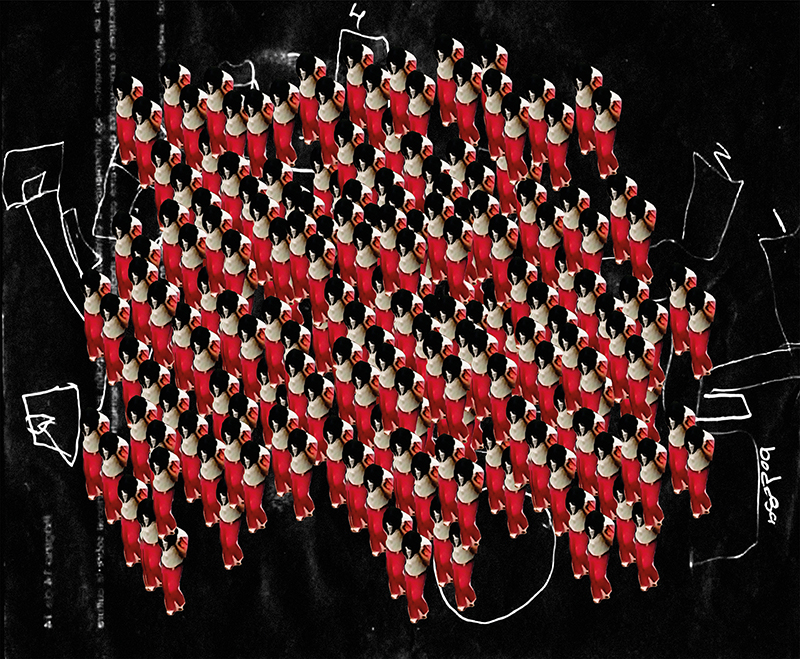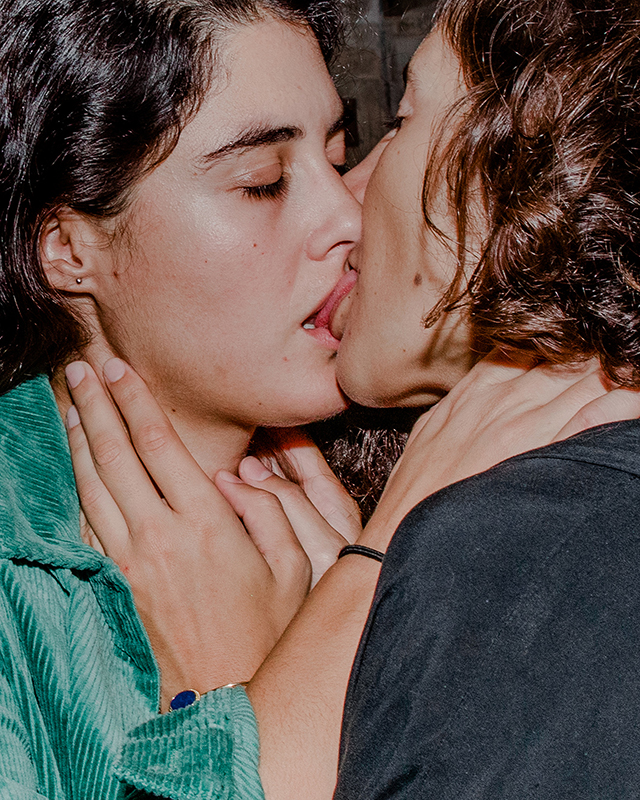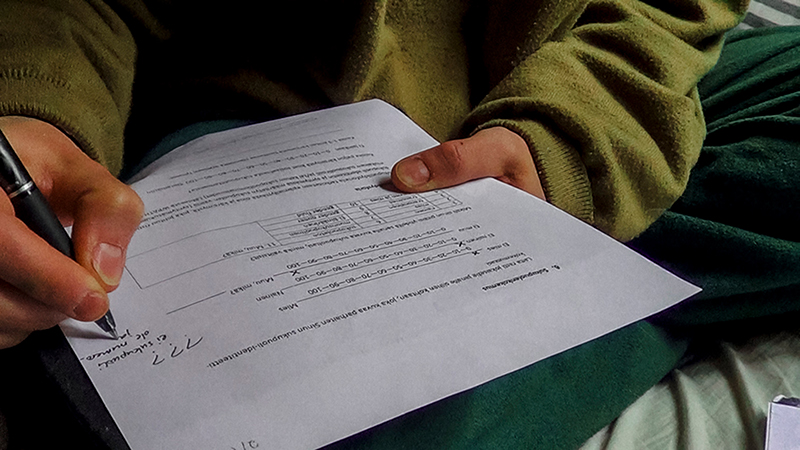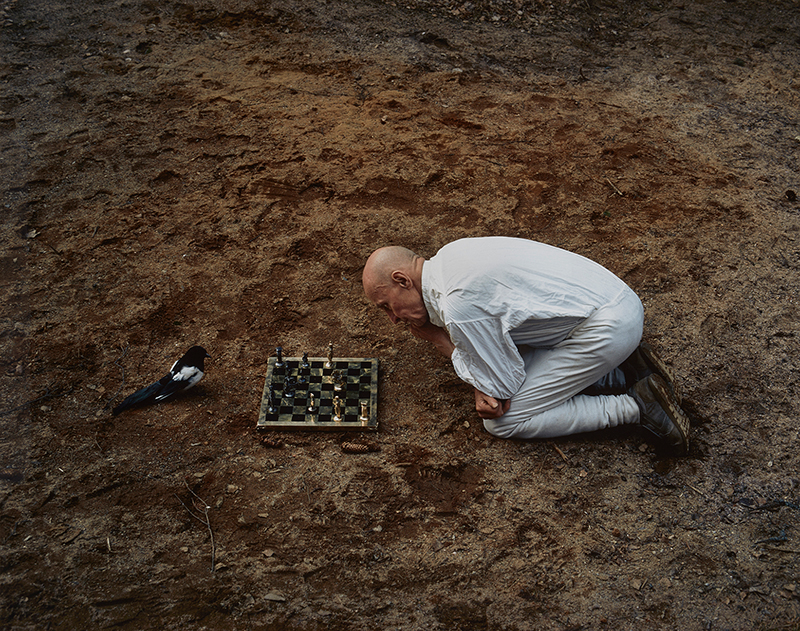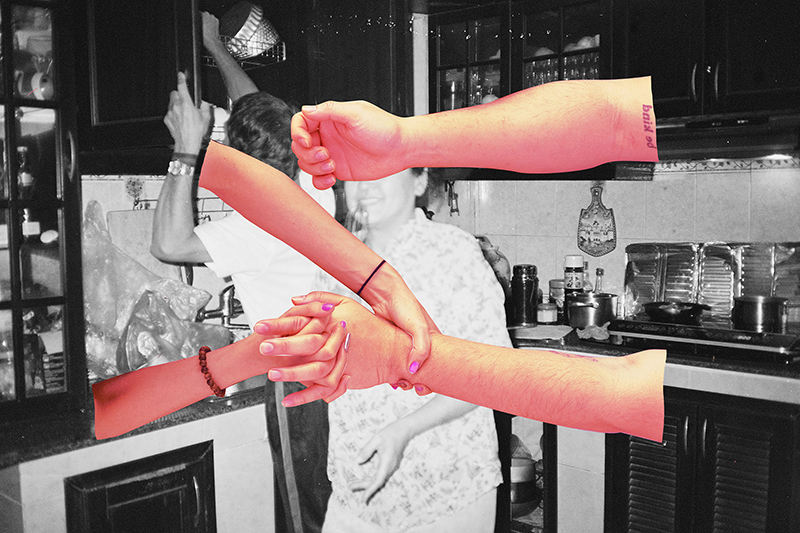PVF 2024: Diagnosis
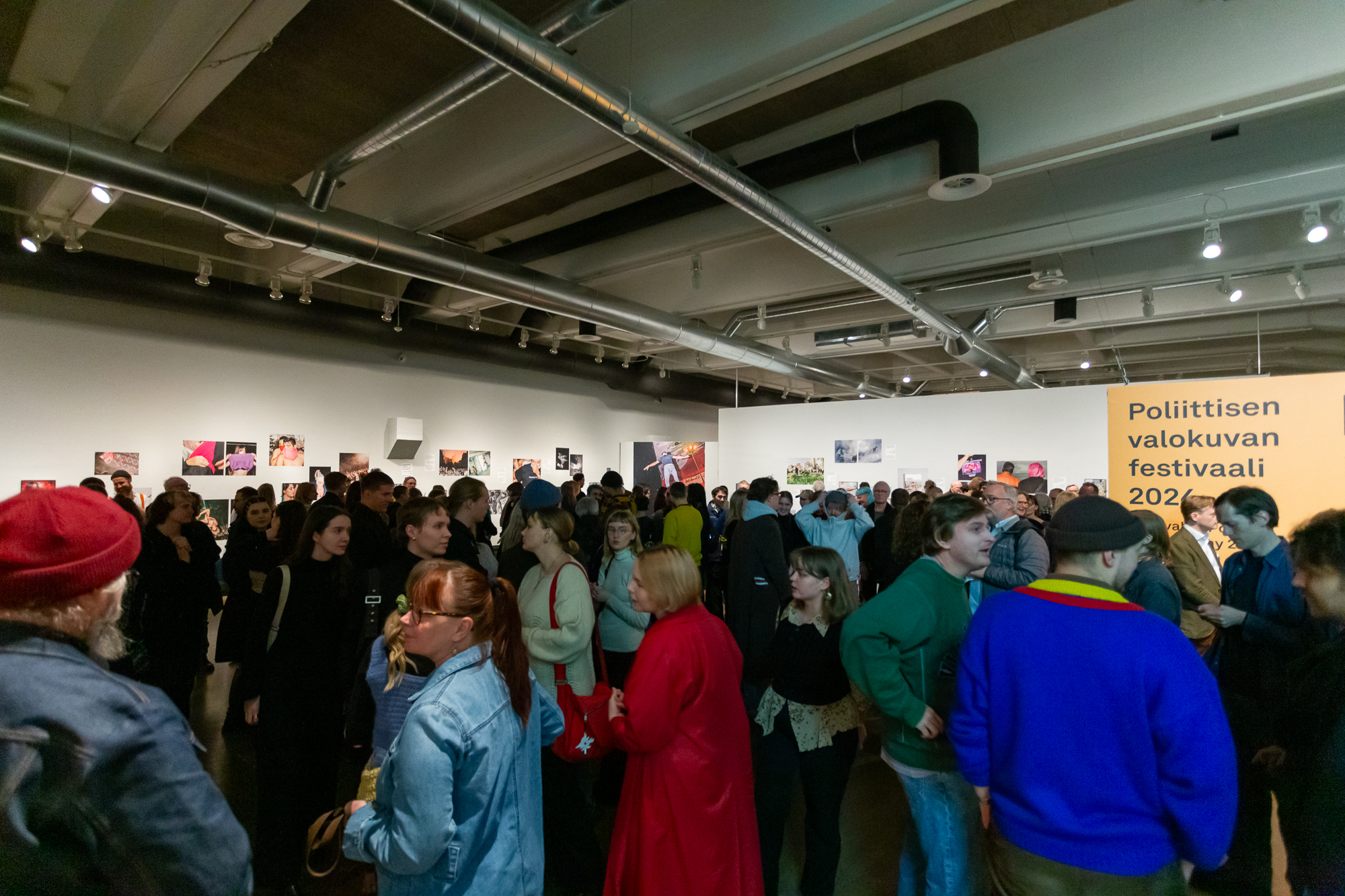


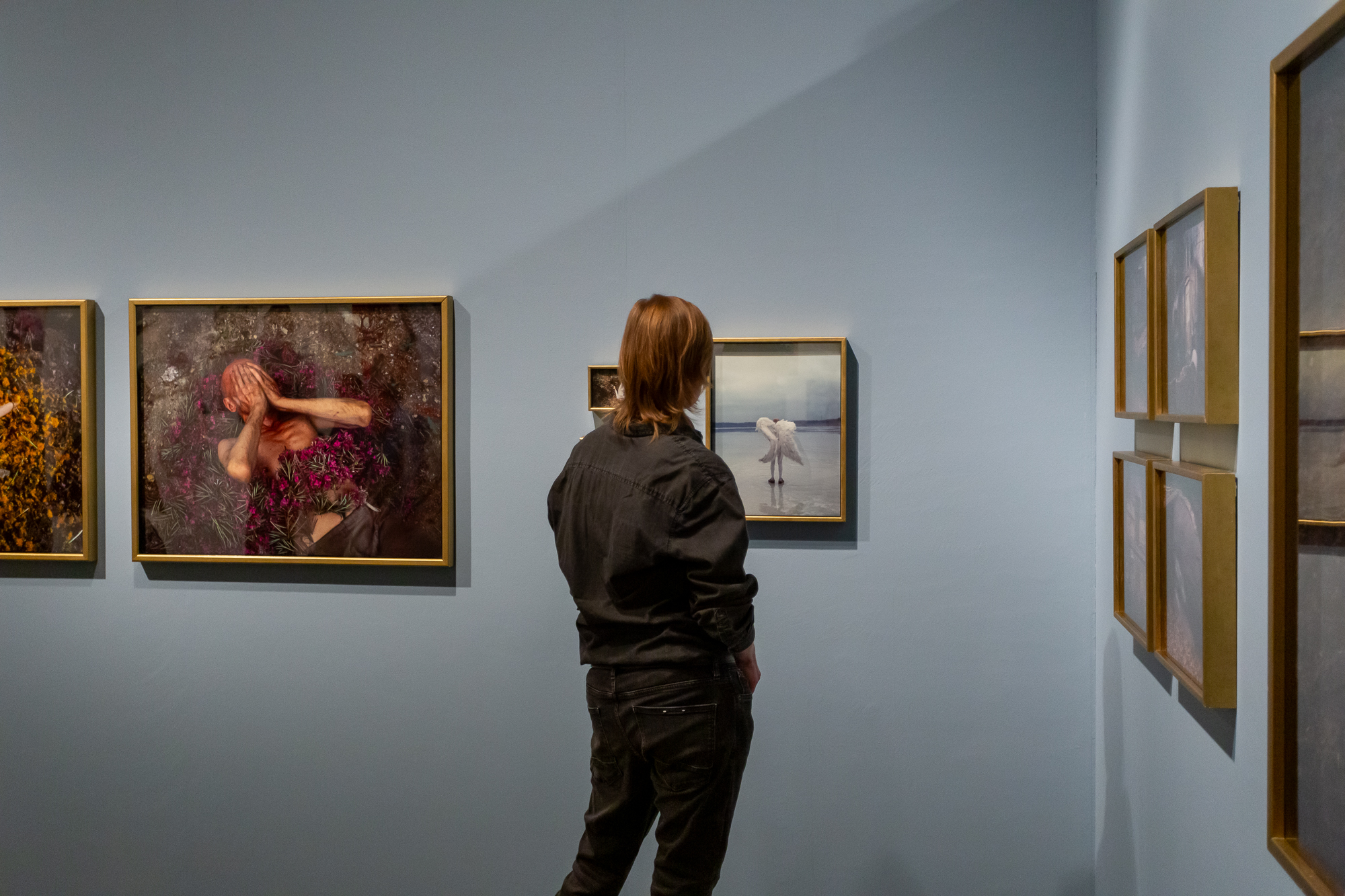





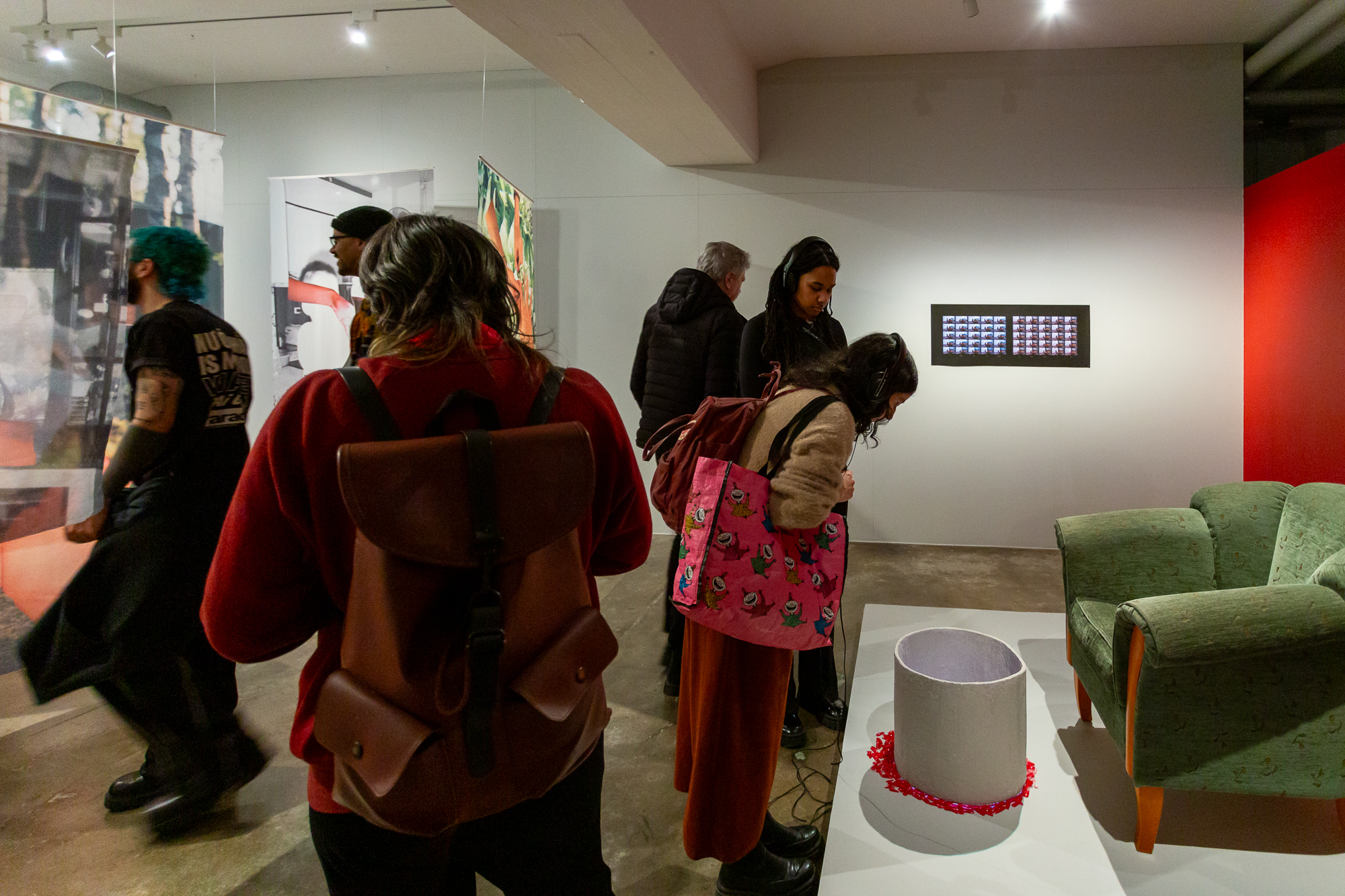
The theme of Festival of Political Photography 2024 is diagnosis. Diagnosis originally meant “resolution” or “verdict”. Its literal meaning refers to knowing something thoroughly. The word “diagnosis” is often used as an adjective – to describe what people are like – or as a noun – to describe what I am like. In reality, however, “diagnosis” is a verb – to actively do something.
Diagnosis is a process in which society chooses a lens through which people are scrutinized. Author and activist Eli Clare writes that “diagnosis wields immense power. It can provide us access to vital medical technology or shame us, reveal a path toward less pain or get us locked up. It opens doors and slams them shut.”
This exhibition’s approach to diagnosis also regards it as a specific lens which frames the exploration of different states of the body and mind in situations where they conflict with the expectations of the status quo. The culture of diagnosis makes people believe that they have to look for solutions to problems within themselves, which diverts attention away from societal structures that are often connected to those problems.
Our approach to diagnosis is much wider than merely the observation of medical symptoms. We focus our gaze on society and the diagnosis it requires. Even if individual bodies are in conflict with societal expectations, they can come together and form a collective force that has the ability to change society. Diagnosis can be a means to create order in the chaos and beauty of bodies and the world.
Diagnosis is also a prognosis about the future. It anticipates the way our bodies might change with time – how will I and others like me fare in the future? – and it can give us a glimpse of the kind of values our future society will be based on.
photographers and artists
Laia Abril, Myriam Boulos, August Joensalo, Jan Kaila and Phan Nguyen
exhibitions
Diagnosis
31.1.–5.5.2024
The Finnish Museum of Photography, The Cable Factory, Kaapelinaukio 3, staircase G, Helsinki ManiQueer
31.1.–31.3.2024
The Finnish Museum of Photography Gallery (0 floor), The Cable Factory, Kaapelinaukio 3, staircase G, Helsinki
Festival programme
30.1.2024 at 18–20
Festival opening!
31.1.2024 at 17.30–19
Artist talk: Laia Abril
15.2.2024 at 10:15–17
Seminar: Artists and Curators working together: How and with whom?
28.2.2024 at 18–19
Artist talk: Phan Nguyen
︎︎︎ The Finnish Museum of Photography Gallery (0 floor) / in English. Follow more detailed event information on the museum's events calendar and on social media
20.3.2024 at 17:30–19
Talk: Art & Activism
︎︎︎ The Finnish Museum of Photography / in Finnish. Follow more detailed event information on the museum's events calendar and on social media
27.3.2024
Performance by Phan Nguyen
︎︎︎ Follow more detailed event information on the museum's events calendar and on social media
24.4.2024 at 17:30–19
TALK: Diagnosis & Society
︎︎︎ The Finnish Museum of Photography / in English. Follow more detailed event information on the museum's events calendar and on social media
The supporters of the Festival of Political Photography 2024: Finnfoto, Saastamoinen Foundation and the Finnish Museum of Photography.

Laia Abril: On Mass Hysteria





In this exhibition, Laia Abril focuses on Mass Psychogenic Illness (MPI) and explores the idea of it being an ancient form of female protest. Widely known as “Mass Hysteria”, this disorder is believed to be triggered by severe traumatic events and typically affects tight-knit communities that are overwhelmed by high-stress situations. With no known physiological cause, sudden symptoms – such as fainting, twitching, unstoppable laughter, and trance-like states – are experienced collectively and can persist for months.
Through an expansive archival installation, the artist demonstrates that this is a far-reaching phenomenon – both temporally and geographically. Abril investigates three specific case studies from Mexico, Cambodia and the U.S., visualizing the different societal interpretations of these outbreaks. Through a video installation she delves into the power of collective pain and transgenerational trauma and establishes a connection between the oppressive state and mass hysteria as a collective physical response of resistance.
In On Mass Hysteria Abril explores the intricate dynamics of outbreaks from a feminist perspective. She seeks to answer enduring questions such as what drives the spread of these epidemics, and why they disproportionately impact young women. Firmly rooted in research, her approach intertwines psychology, anthropology, medical history, and women’s rights to shift the focus from blaming women for their medically unexplained ailments to examining the influence of societal and political oppression.
The exhibition On Mass Hysteria is a co-production between Photo Elysée (Lausanne), LE BAL (Paris), The Finnish Museum of Photography and Les Filles du Calvaire gallery (Paris).
Laia Abril (b. 1986, Barcelona) is a multidisciplinary artist whose works center on themes of women’s rights, grief, and bio-politics. Following On Abortion (2016) and On Rape (2020), On Mass Hysteria is the latest chapter in her trilogy, A History of Misogyny –a long-term research project that challenges societal tendencies to dismiss women’s suffering and undermine their narratives. Her research-based practice employs photography, text, and sound to explore difficult and hidden realities.
︎Laia Abril
DIAGNOSIS
PVF 202431.1.–5.5.2024
The Finnish Museum of Photography
Watch the interview with Laia Abril (in English):
Myriam Boulos: What’s Ours



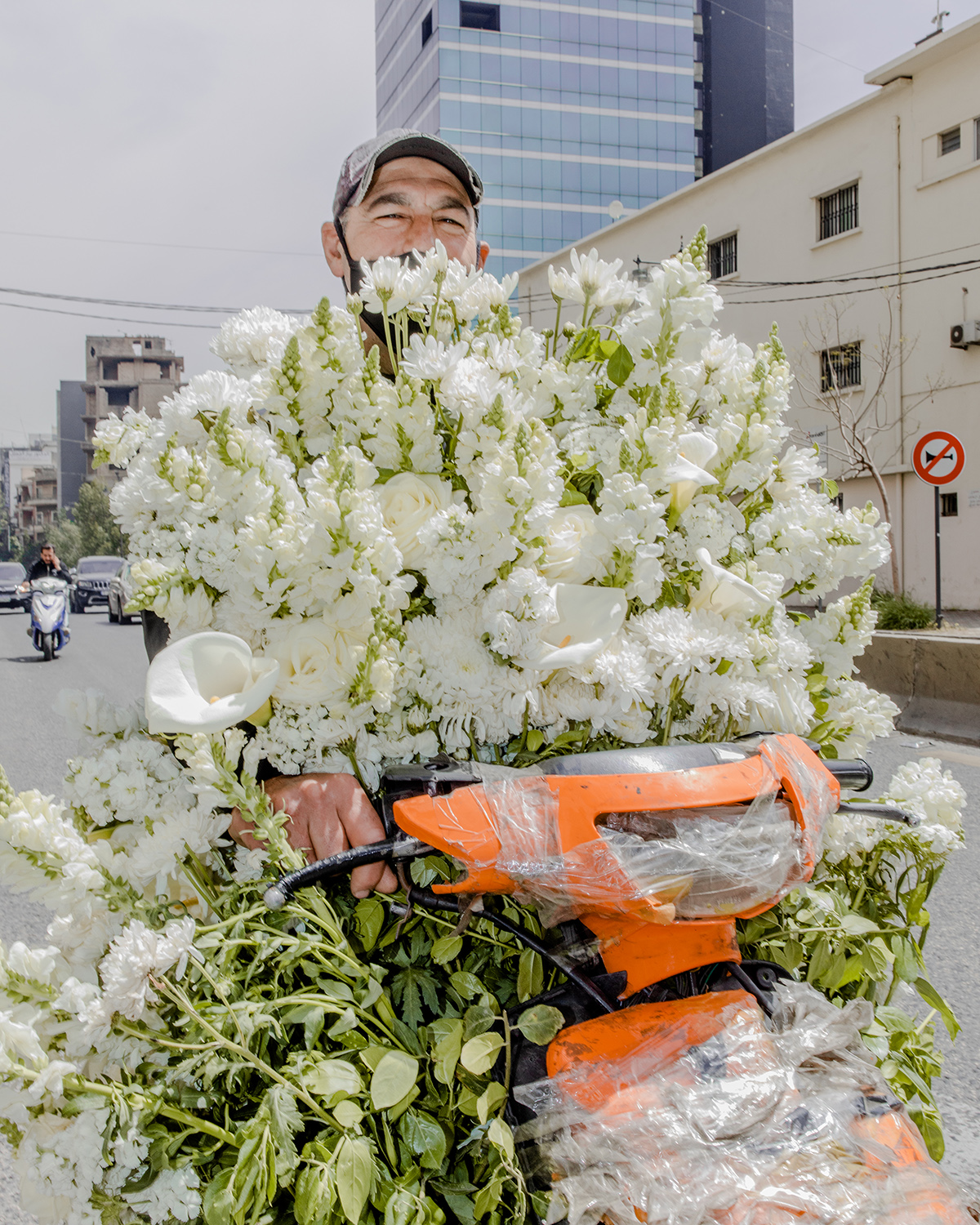
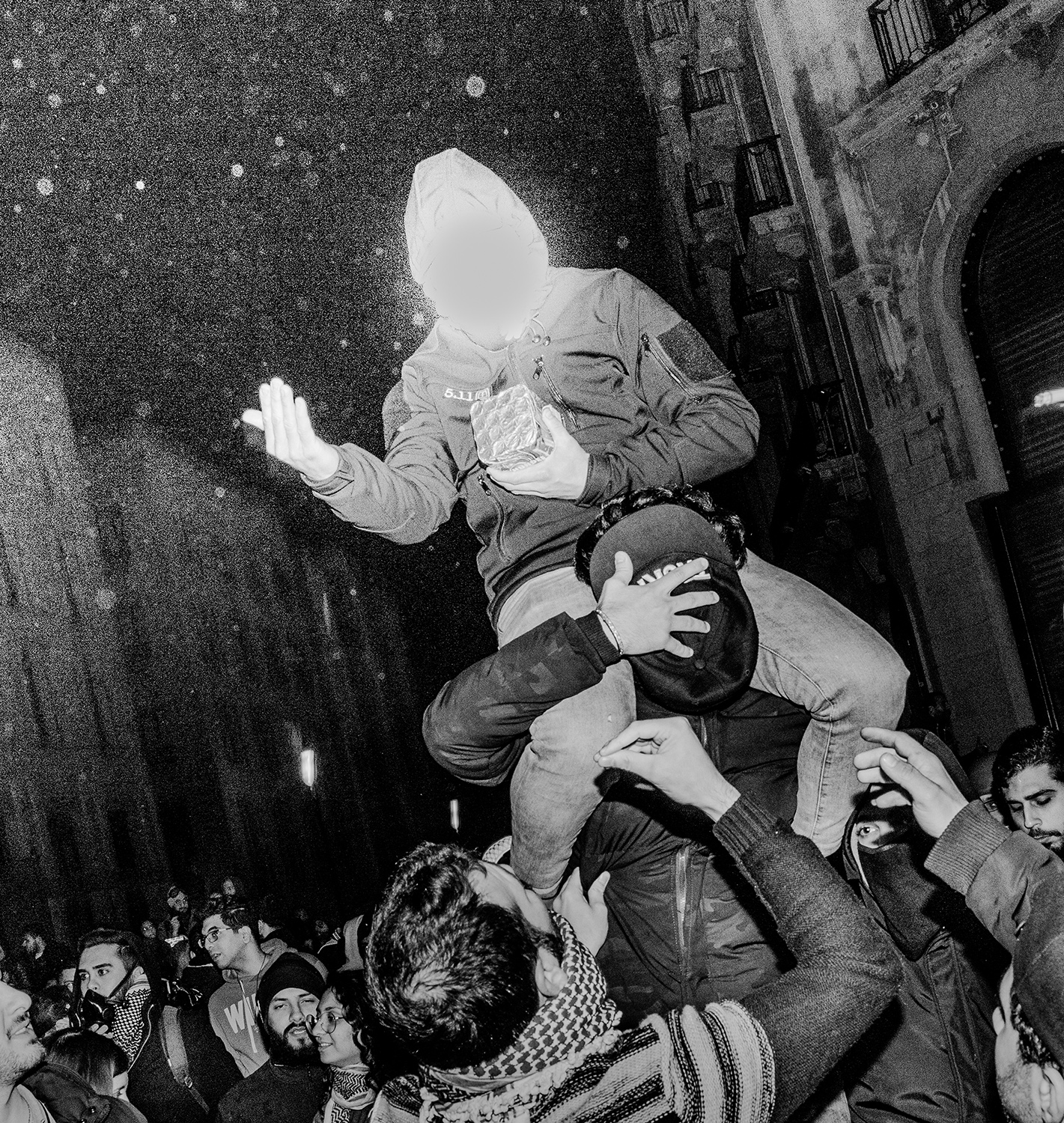
This exhibition consists of photographs and text from Myriam Boulos’ first monographic book, What’s Ours. The series is Boulos’ diaristic portrait of today’s Beirut, the capital of Lebanon, both as a city and as a society in revolution. The protests in Lebanon started in 2019 as a reaction to governmental corruption and austerity – culminating with the aftermath of the devastating Beirut port explosion of August 2020.
High level political corruption drives people’s lives into a constant state of precarity, which can seem like a hopeless diagnosis without a cure. However, as Boulos shows with her photos, people and bodies are resilient, especially when they join together in resistance towards the powers that oppress them.
Boulos photographs her friends and family. To her, the act of photographing is a necessity – a way to shut out the world in turmoil and to concentrate on the tenderness of being in a moment together with loved ones. Simultaneously, she documents bodies that come together from necessity, to share intimacy within the surrounding political climate, and as a collective reaction to it. Rendering bodies both powerful and vulnerable, Boulos’ photos reveal the complexity of everyday life within state neglect. Life continues despite the surrounding oppressive structures. This fact shines a light on a system that itself needs to be cured.
Boulos’ photos in this exhibition are from 2013–2023, and the book What’s Ours was published by Aperture in 2023.
Myriam Boulos (b. 1992, Beirut) emerged from a country fragmented by war that had to reinvent itself. At the age of sixteen, she started to use her camera to question Beirut, its people, and her own position in Lebanese society. She graduated with a master’s degree in photography from the Lebanese Academy of Fine Arts in 2015. In 2021, she was awarded the Grand Prix ISEM award, and she joined the Magnum Photos cooperativ.
︎Myriam Boulos
DIAGNOSIS
PVF 202431.1.–5.5.2024
The Finnish Museum of Photography
Watch the interview with Myriam Boulos (in English):
August Joensalo: F64.8 - Other gender identity disorder



Finnish law continues to define nonbinary and trans people as suffering from “identity disorders”. Nonbinary and trans people who require healthcare services like surgical or hormonal treatment as part of their gender affirming process have to undergo a psychiatric examination process that lasts several years. Medical treatment is granted only after a psychiatrist has diagnosed the person in question with a “gender identity disorder”.
The Trans Clinic aka Gender Identity Clinic is the gatekeeper for gender affirming treatments in Finland. The Trans Clinic defines being trans or nonbinary based on gender dysphoria, specifically body dysphoria. The Trans Clinic has been criticized about its emotionally violent examination methods, lack of expertise, arbitrary decision making, and waiting times of several years, which is in direct violation of the Finnish Treatment Time Guarantee law.
The examination process takes several years. It is based on dozens of interviews and tests where trans people have to prove to the doctors, nurses and psychologists that they are indeed trans. To get the diagnosis required for the treatments they need, trans people have to talk to the medical personnel about their sex life, genitalia, and any emotional trauma they might have. If one gives “correct” answers, the process goes forward, but any “wrong” answers might either halt the process for several years or put a stop to it altogether.
The current trans law is in violation of trans people’s human rights. This will not change until trans people can make their own decisions concerning their own bodies.
F64.8 – Other gender identity disorder is a fifteen-minute video art piece by August Joensalo. The artwork considers trans healthcare in Finland from a first-hand perspective. During a three-year-long examination process, the artist has progressed to the diagnosis level and hereby unlocked access to hormone replacement therapy. After that, they still have to wait at least eighteen months before they can get a mastectomy (chest masculinization surgery).
The artwork introduces two different attitudes towards and ways of talking about transness: discussions that the artist had with a member of the Trans Clinic staff, and discussions that they had with their partner. These discussions present a juxtaposition of the violence of the gatekeeping system with the mutual solidarity and love of trans communities.
August Joensalo (b. 1993) is a Finnish and Karelian filmmaker, artist & writer. Their practice is centered on the idea of building an archive of a personal and communal queer life, while celebrating trans resilience, joy and existence. Joensalo is interested in telling stories about memories, time, embodiment, play, dreams & utopian thinking. Joensalo holds a BA in film directing from Aalto University (2018) as well as a MFA from HDK-Valand (2021) in filmmaking.︎ August Joensalo
DIAGNOSIS
PVF 202431.1.–5.5.2024
The Finnish Museum of Photography
